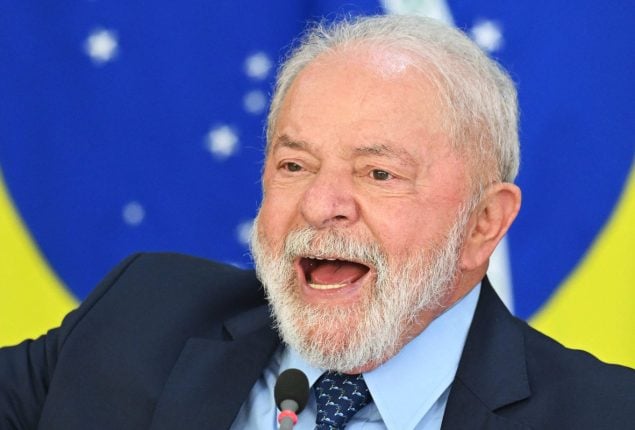Russia strikes village in eastern Ukraine, killing 3 dead & 2 injured
Pavlo Kyrylenko, the Head of Ukraine's Donetsk region, revealed that up to...

BRICS leaders negotiate concerns before debate about expansion
The leaders of BRICS convened on Tuesday to engage in discussions about the alliance’s future in the midst of existing differences and a forthcoming pivotal debate regarding the expansion of the alliance.
Both China and Russia are working to bolster the bloc, aiming to establish a counterbalance to the prevailing Western dominance.
Against a backdrop of escalating global tensions arising from the Ukraine conflict and China’s intensifying rivalry with the United States, China and Russia are strategically aligning to reinforce the strength of BRICS, which also encompasses South Africa, Brazil, and India.
The virtual participation of President Vladimir Putin highlights Russia’s dedication to strengthening the alliance’s influence. The summit, taking place in Johannesburg from August 22 to 24, seeks to position BRICS as a counterweight to the globally dominant Western institutions.
Although Chinese President Xi Jinping’s absence has raised questions, particularly after his prior meeting with South African President Cyril Ramaphosa, his message was conveyed by Chinese Commerce Minister Wang Wentao.
As indicated by remarks from Brazilian President Luiz Inacio Lula da Silva, the group holds diverse perspectives.
President Lula, during a social media broadcast, emphasized that BRICS places emphasis on unity among its member nations rather than solely acting as a counterbalance to entities like the G7, G20, and the United States.
Amid discussions about expansion, the agenda also encompasses the promotion of local currencies for trade and Russia’s push for reduced reliance on the US dollar.
President Putin underscored this shift in a pre-recorded statement. While the idea of a shared BRICS currency for inter-country trade was suggested by Brazil, South African organizers have excluded it from the talks.
The diversity inherent in BRICS poses a significant challenge, ranging from China’s substantial economic influence to South Africa’s relatively smaller size.
Notably, India and Brazil have inclined towards nurturing relationships with Western nations, setting them apart from Russia’s aspiration to fortify its global connections.
The ongoing border tensions between India and China add an additional layer of complexity to decision-making within this consensus-driven group.
In response to this situation, White House National Security Advisor Jake Sullivan does not perceive BRICS as a geopolitical adversary to the United States, citing the array of differing viewpoints among its member states.
The long-prioritized expansion, especially for China, could potentially amplify the group’s global impact, though India remains cautious while Brazil expresses concerns about the potential dilution of its influence.
To stay informed about current events, please like our Facebook page https://www.facebook.com/BOLUrduNews/.
Follow us on Twitter https://twitter.com/bolnewsurdu01 and stay updated with the latest news.
Subscribe to our YouTube channel https://bit.ly/3Tv8a3P to watch news from Pakistan and around the world.
Catch all the International News, Breaking News Event and Latest News Updates on The BOL News
Download The BOL News App to get the Daily News Update & Follow us on Google News.